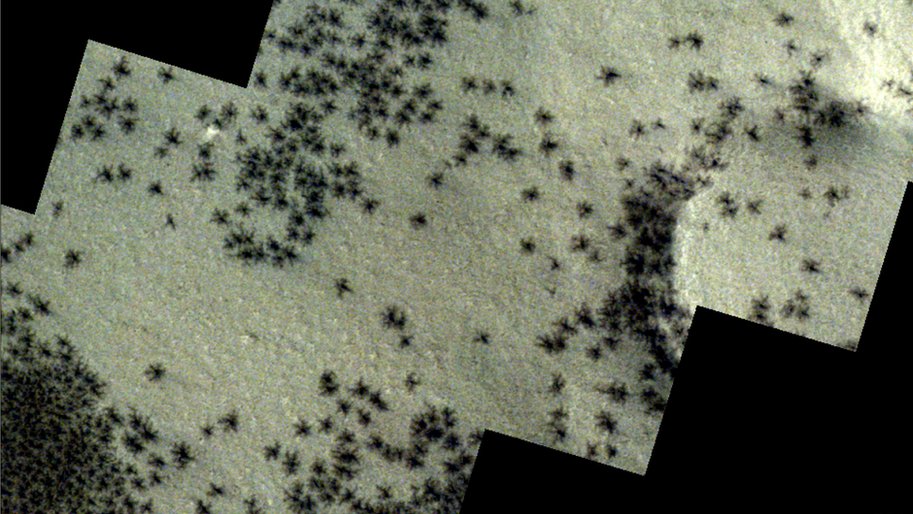Nasa scientists solve ‘spiders' on Mars mystery

- Published
Nasa say they think they've solved the mystery of one of Mars' most unusual features.
Scientists from the US space agency have managed to recreate the spider-like shapes that can be seen on the red planet.
These dark spots can be found on its surface across the southern hemisphere.
Tests on Earth appear to confirm that the strange formations are carved by carbon dioxide.
More space news
- Published12 September
- Published15 October
- Published7 September
What did Nasa scientists discover about the Mars 'spiders'?
Scientists first discovered 'spiders' on Mars in 2003 thanks to images captured from orbiters.
Each shape can stretch between 45 metres and 1km wide and include hundreds of spindly “legs.”
The official name for these dark spots is araneiform terrain, and they often give the surface of the planet a wrinkled appearance as they are usually found in clusters.
Experts weren't sure exactly how these formations were made, but they thought that it might be down to carbon dioxide.
In order to prove this idea, researchers set up conditions in a laboratory similar to temperatures and air pressure found on Mars.
They then carried out their experiment - replicating the process that they thought was taking place - and managed to recreate the 'spiders' for the first time and confirm their theory.
How did the 'spiders' on Mars form?
Layers of carbon dioxide ice build up on Mars over the planet's dark winter months.
Then during Mars' spring, sunlight hits the frozen carbon dioxide turning it into gas which builds up and cracks through the ice above, allowing it to escape.
When it bursts through onto the surface, it drags up dark dust and sand from the soil with it, creating these spider-like shapes.
